
“We must act, individually and collectively, to make our attention our own again, and so reclaim ownership of the very experience of living.
— Tim Wu, The Attention Merchants
I began reading the extremely eye-opening book How To Break Up With Your Phone by Catherine Price (2018) and wanted to recite it loudly from the rooftops. Since that would only reach the people walking by on the street at that moment (who would most likely be distracted on their phones), I figured writing about it would extend my reach to you fine folks (who are most likely reading this on your phones). It was hard not to re-write her entire book as my post. Every sentence she shares I want to shout for all to hear.
I’m one of those Xennials — you know, the ones born between 1977-1983 — who have their own little micro-generational name. The ones who spent their childhood outdoors with zero supervision. The ones who began getting technology around high school, but had to wait for the loud screeching dial-up. The ones who didn’t have social media until their 20s. The ones who don’t have every stupid mistake recorded and saved forever. We know the wonderful way of living before the internet and advanced technology took over, yet were young enough when it all came out that we were able to learn it easily and now can’t imagine our lives without it. We’re “the lucky generation,” as the internet suggests.
It is not a secret that everyone’s heads are buried in their phones, and while many of us complain about it, we don’t know what to do about it – for ourselves or for others. That is where this book can help. It is 167 pages, but physically small in size, making it a quick read. It is also broken up into two parts: The Wake-Up and The Break-Up. This post focuses on Part 1.
Price’s purpose in writing this book is not to completely rid your life of your phone or other wireless mobile devices, but rather to change your relationship with them.
Phones have, in a sense, become our best friends (because we spend the most time with them), but best friends should be humans. Pets are acceptable too. The author makes a good point: “Smartphones are amazing tools, but something about them also makes us act like tools.” She adds, “If you wanted to invent a device that could rewire our minds, if you wanted to create a society of people who were perpetually distracted, isolated, and overtired, if you wanted to weaken our memories and damage our capacity for focus and deep thought, if you wanted to reduce empathy, encourage self-absorption, and redraw the lines of social etiquette, you’d likely end up with a smartphone.” Unfortunately, that device is here, and probably here to stay. Price points out that we have become “Busy but ineffective. Connected but lonely.”
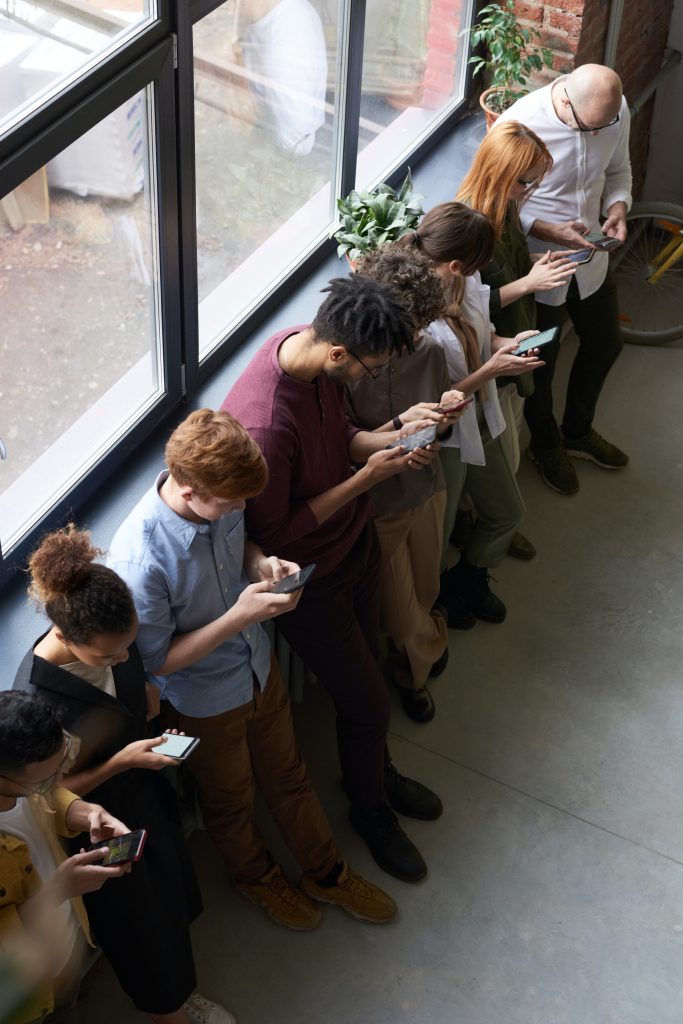
Did you know that Americans collectively check their phones more than nine billion times a day?! Just Americans! Nine billion times every day!
If you spend more than four hours a day on your phone (which most do) that amounts to 56 full days a year. Knowing that I’ve wasted 56 out of 365 days each year makes me ill. Think about how much more you could accomplish during those 28 hours a week/112 hours a month! By the way, if you don’t know how to check this, you can go to Settings > Screen Time on iPhones and Settings > Digital Wellbeing on Androids. Another good point Price makes: “If you spend four hours a day doing anything, you’re going to get pretty good at it.” For instance, if you spend four hours per day practicing tennis or four hours per day learning French, you’re going to become quickly skilled at playing tennis and speaking French. Four hours per day on your phone just makes you really good at looking at your phone.
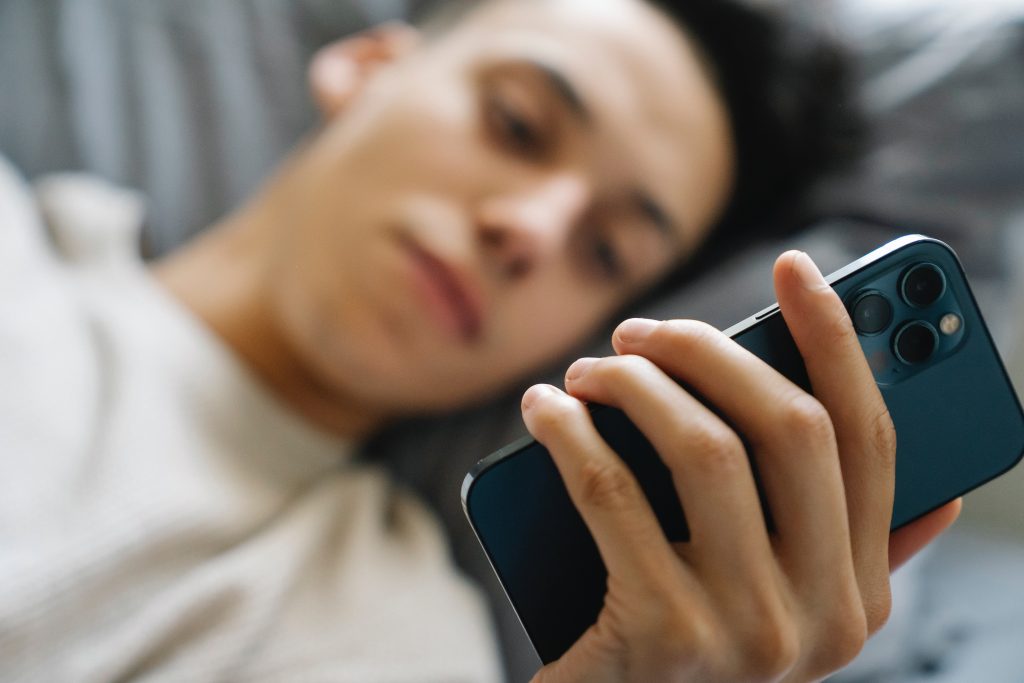
These statistics prove that phones have become a digital drug. We crave them.
We don’t know how to sit in a waiting room without them. Sometimes we can’t even make it through a red light without checking them. One reason for this is that wireless mobile devices trigger dopamine. The brain chemical dopamine makes us feel excited which is why we crave our phones. However, “dopamine-induced excitement is not the same thing as actual happiness” as Price points out. Unfortunately, it is hard to tell the difference between excitement and happiness, so we reach for the thing that excites us because it’s more instantaneous. The author proposes a game: “The next time you’re in public, take a second to notice how many of the people around you – including children – are staring at their phones. Then imagine that instead of looking at their smart-phones, those same people were shooting up. Would the fact that half the people around you were doing so make it seem normal or okay?” She doesn’t suggest that phones are as bad as intravenous drugs, but it does prove we have a real problem on our hands.
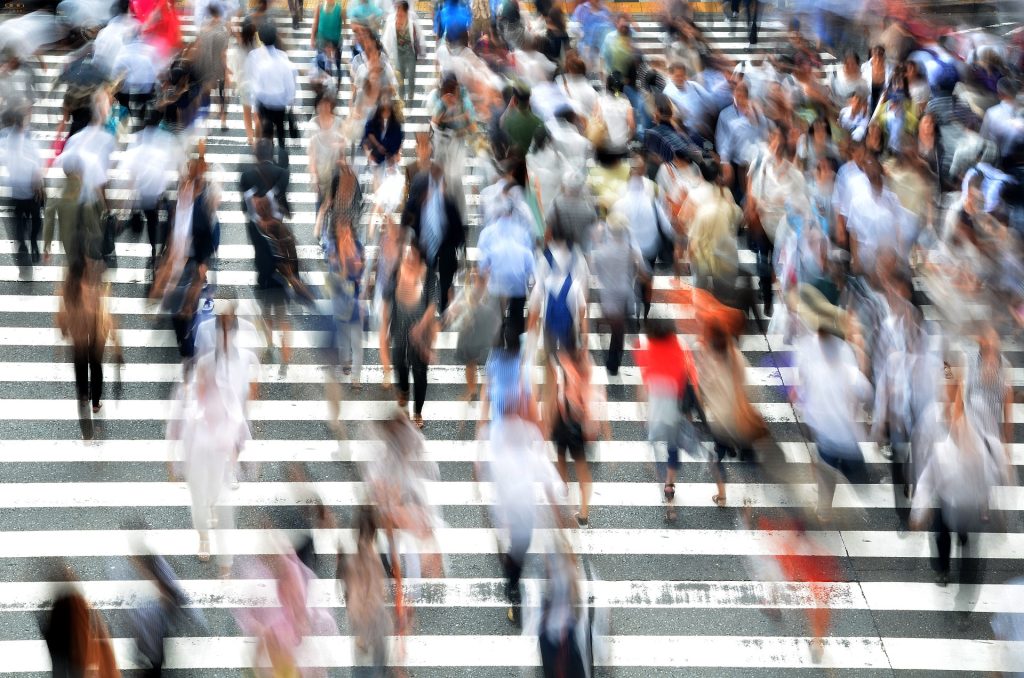 One thing that leads to this is the modern-day acronym FOMO (fear of missing out). This starts from as early as we can remember. Have you ever met a kid who actually wants to go to bed every night when the adults want them to go to bed? I never have! It’s not because they’re not tired; it’s because they think the fun is continuing without them, regardless if it is or not. Price points out, “We were protected from developing a full-blown infection by the fact that, until smartphones, there was no easy way to find out about all the things we were missing out on. Once you’d left your home (and your landline) to go to one party, you had no way of knowing that another party going on at the same time might be more fun.” You just enjoyed the party you were at.
One thing that leads to this is the modern-day acronym FOMO (fear of missing out). This starts from as early as we can remember. Have you ever met a kid who actually wants to go to bed every night when the adults want them to go to bed? I never have! It’s not because they’re not tired; it’s because they think the fun is continuing without them, regardless if it is or not. Price points out, “We were protected from developing a full-blown infection by the fact that, until smartphones, there was no easy way to find out about all the things we were missing out on. Once you’d left your home (and your landline) to go to one party, you had no way of knowing that another party going on at the same time might be more fun.” You just enjoyed the party you were at.
While there are many reasons we use our phones outside of work hours, social media takes a front seat. Facebook, Instagram, Snapchat, YouTube, Twitter, LinkedIn, Pinterest, TikTok, etc. have figured out algorithms to keep us unable to look away. The book states that a New York Times analysis calculated that as of 2014, Facebook users were spending a collective 39,757 years’ worth of attention on the site every single day. Add more users, additional social media platforms and higher addictive rates over the past nine years since that analysis was calculated, I’m sure that daily number is exponentially higher. All that time could have been spent on families, friends, careers, ourselves and our contributions to the world!
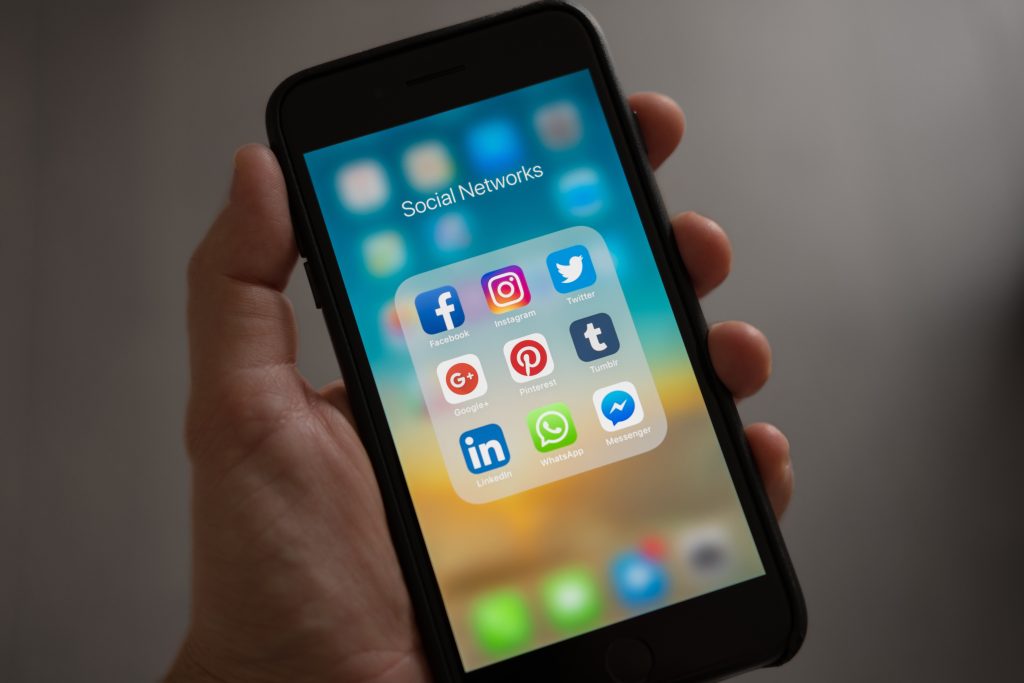 Social media is essentially a public popularity contest.
Social media is essentially a public popularity contest.
When Xennials and older generations were in school, popularity was limited to the privacy of that school, not every single person we knew and had ever met. Now, we intentionally create a popularity contest online (for better or worse). The number of likes and comments and emojis we get (or don’t get) is akin to deliberately reliving the worst parts of middle and high school. Why are we doing this to ourselves?!
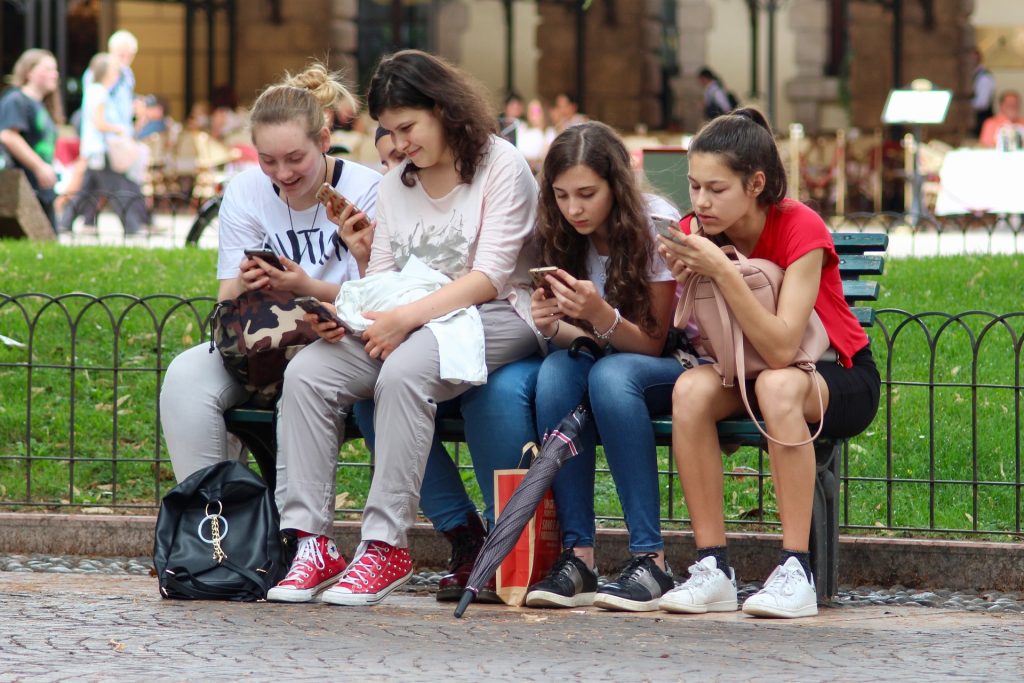 It’s not surprising that mental health has become a bigger issue since the first iPhone was released in 2007. Price references an article in The Atlantic, where psychologist Jean Twenge presents compelling evidence that smartphones have “radically changed every aspect of teenagers’ lives.” Trends in teenage behaviors from 1976 to 2016 including time spent with friends, age of getting drivers’ licenses, dating, sleep, sex and loneliness, show drastic change after 2007. Twenge notes that today’s teens may be physically safer than their predecessors, but that’s likely because they’re on their phone…in their room…alone…and distressed. Heightened depression and suicide rates are the result.
It’s not surprising that mental health has become a bigger issue since the first iPhone was released in 2007. Price references an article in The Atlantic, where psychologist Jean Twenge presents compelling evidence that smartphones have “radically changed every aspect of teenagers’ lives.” Trends in teenage behaviors from 1976 to 2016 including time spent with friends, age of getting drivers’ licenses, dating, sleep, sex and loneliness, show drastic change after 2007. Twenge notes that today’s teens may be physically safer than their predecessors, but that’s likely because they’re on their phone…in their room…alone…and distressed. Heightened depression and suicide rates are the result.
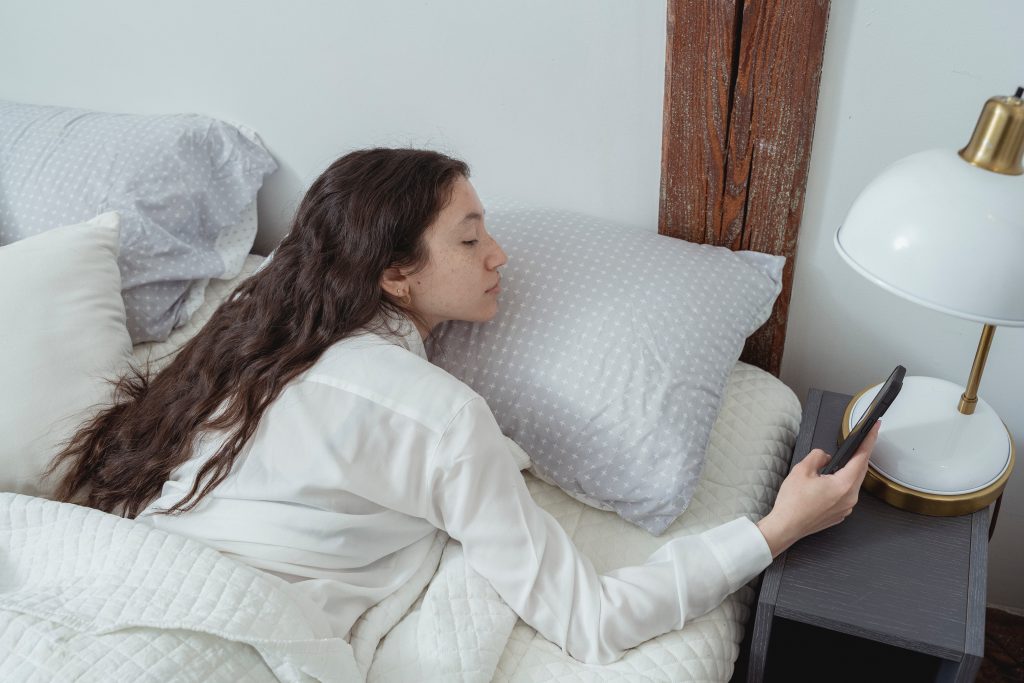 The last thing I want to stress is Chapter 9 entitled Stress, Sleep, & Satisfaction. Since I can’t share the entire chapter, I will paraphrase the best I can. Every night, 2-3 hours before bedtime (when the day’s blue light begins to be replaced by darkness or a yellow glow), your brain releases melatonin, which makes you sleepy. When that blue light (daytime) hits the back of your eyes in the morning, melatonin stops production and you start to awaken. I’m sure you’ve heard that screens radiate blue light. So when we look at that blue light before bed or during the night, it is telling our bodies we are supposed to be awake. Even if you set your phone settings to the dark background at night, our phone activities are stimulating.
The last thing I want to stress is Chapter 9 entitled Stress, Sleep, & Satisfaction. Since I can’t share the entire chapter, I will paraphrase the best I can. Every night, 2-3 hours before bedtime (when the day’s blue light begins to be replaced by darkness or a yellow glow), your brain releases melatonin, which makes you sleepy. When that blue light (daytime) hits the back of your eyes in the morning, melatonin stops production and you start to awaken. I’m sure you’ve heard that screens radiate blue light. So when we look at that blue light before bed or during the night, it is telling our bodies we are supposed to be awake. Even if you set your phone settings to the dark background at night, our phone activities are stimulating.
Price suggests this scenario: try to imagine falling asleep if all the people you follow on social media were in the room with you showing you pictures, the TV was blaring funny cat videos and several friends were having a political debate. Would you be able to fall asleep? When you bring your phone to bed with you this is essentially what you’re doing. You’re deliberately doing this to yourself. And many are allowing their kids to do this as well. Not enough sleep = increasing your risk of obesity, diabetes, cardiovascular disease, chronic fatigue and even early death. In addition to big health concerns, the sleep deprivation and phone use in general can affect judgment, creativity, motivation, mood, self-control, and the ability to learn and retain info, can cause forgetfulness, lack of new memories, loss of focus, poor decision-making, the inability to think deeply, accidents and injury. My final remark from Price: “…if you’re thinking that this obviously does not apply to you, keep in mind that the more sleep-deprived people are, the more vigorously they may insist that they are not – possibly because their ability to judge their own mental state has been impaired.”
 As I follow the second half of the book, which is when I take daily steps to break up with my phone, I will document my findings, my feelings, and my frustrations as I write a follow-up to this post. However, I hope to also be recording fulfillment, more freedom and flexibility, and farewells to many apps. Fingers crossed no fury, failures or other Fs happen in the process.
As I follow the second half of the book, which is when I take daily steps to break up with my phone, I will document my findings, my feelings, and my frustrations as I write a follow-up to this post. However, I hope to also be recording fulfillment, more freedom and flexibility, and farewells to many apps. Fingers crossed no fury, failures or other Fs happen in the process.



















